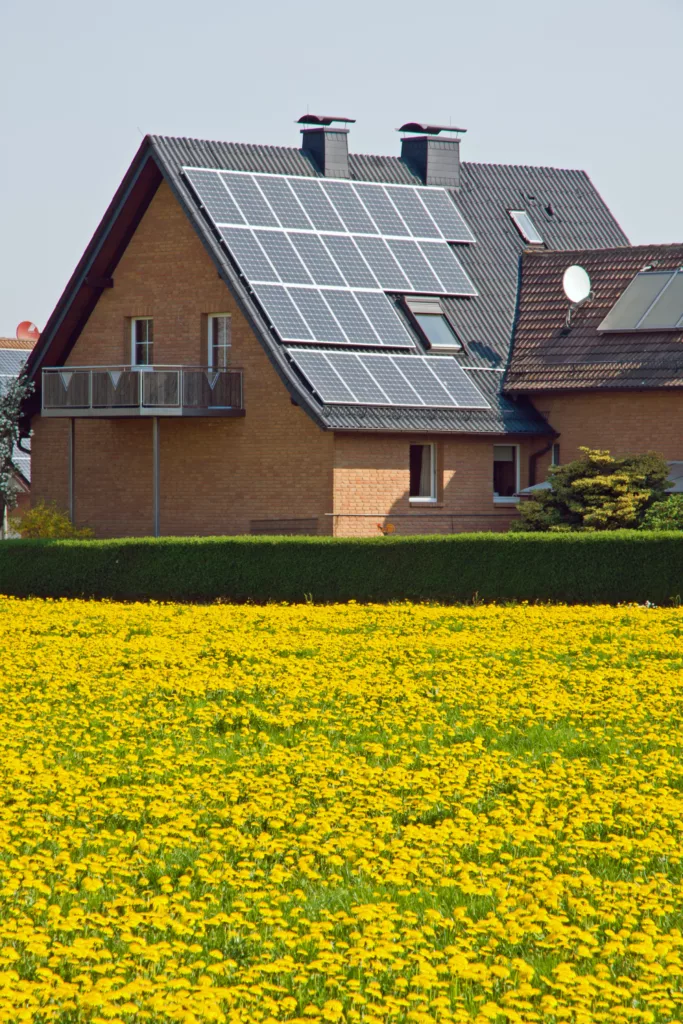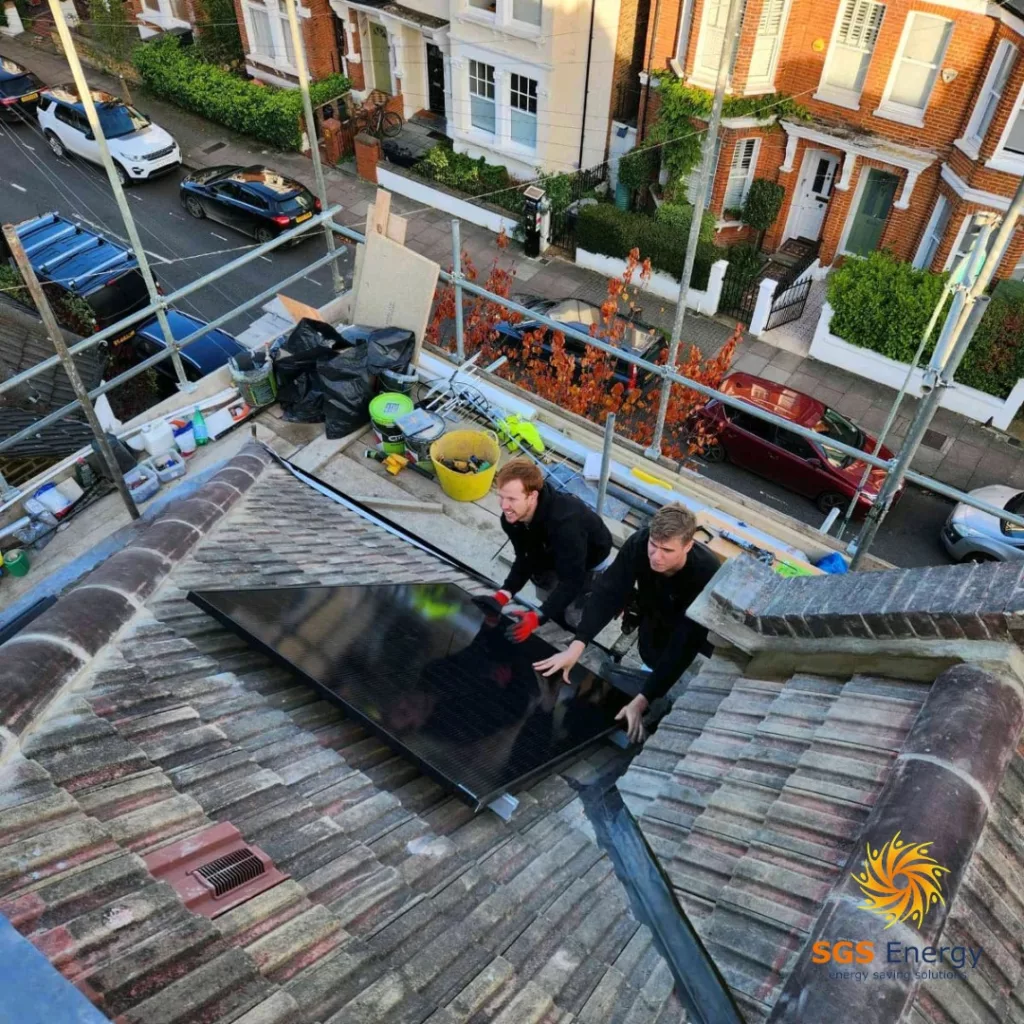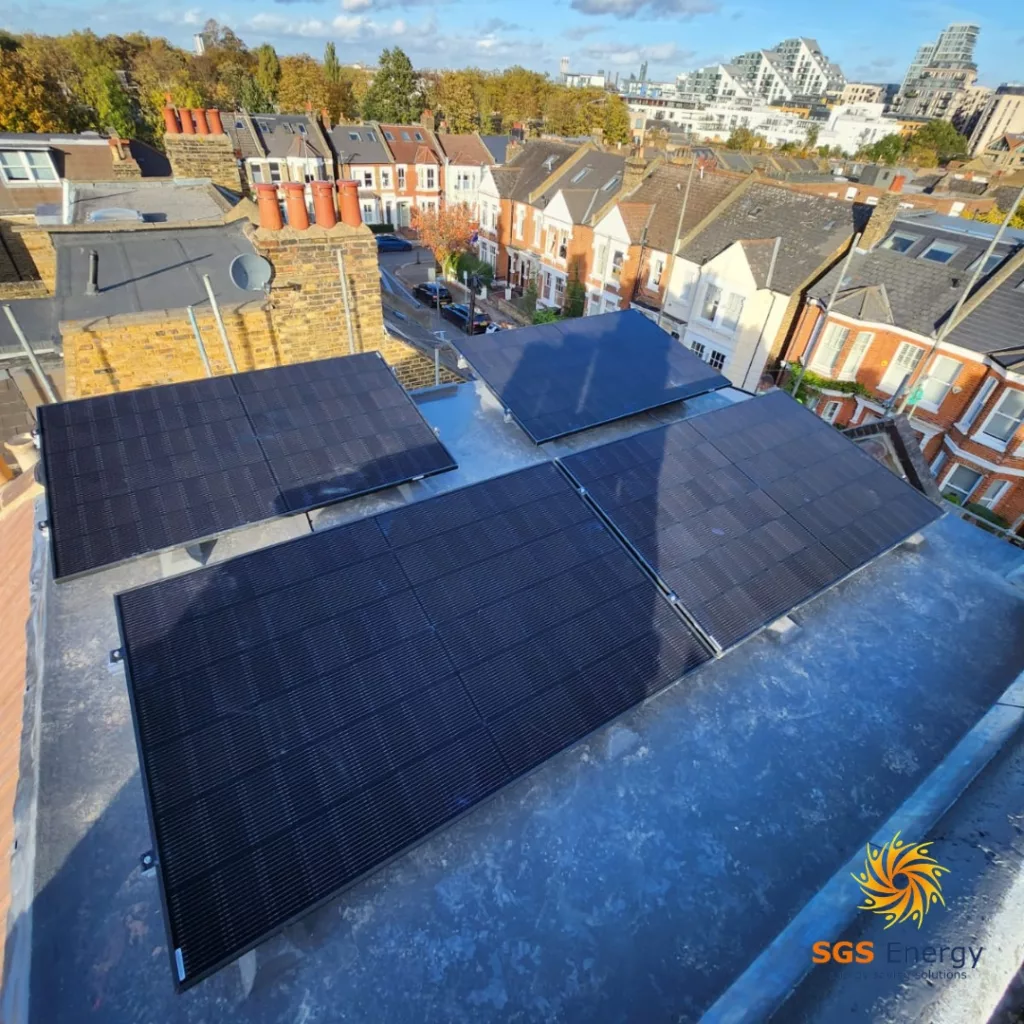Are you considering a switch to solar energy for your home? Perhaps you’ve heard about the benefits but want to understand how solar panels work before making a decision. This comprehensive guide will answer your questions and shed light (no pun intended) on the workings of solar panels.
In this article we will talk about:-
What Are Solar Panels?
Solar panels, often referred to as photovoltaic (PV) panels, are devices that convert sunlight into electricity. Made up of numerous solar cells, these panels use the sun’s energy to generate clean and sustainable power for various purposes, from heating water to powering homes and businesses.

How Do Solar Panels Generate Electricity?
- Sunlight Absorption: When sunlight hits a solar panel, it comprises tiny units called photons. These photons contain energy that the solar cells absorb.
- Electron Excitation: Within each solar cell, photons stimulate the release of electrons from atoms in a semiconductor material, typically made of silicon.
- Electron Movement: The freed electrons create a flow of electricity when they move through the semiconductor material. This flow is directed by an electric field within the solar cells.
- Electricity Production: The flow of electrons creates direct current (DC) electricity, which is then converted into alternating current (AC) through an inverter. AC electricity is what powers most household appliances.
Key Components:
- Solar Cells: These cells are the building blocks of solar panels. They contain silicon layers that create an electric field, enabling the conversion of sunlight into electricity.
- Inverter: Converts the DC electricity produced by the panels into usable AC electricity for your home.
- Racking and Mounting: These components secure the panels to your roof or the ground, ensuring they are positioned optimally to capture sunlight.
- Monitoring System: Allows you to track your solar panel system’s performance and energy production, typically on your smartphone or tablet.
How can you maximise efficiency?
- Sun Angle and Position: Installing panels at an optimal angle and direction ensures maximum exposure to sunlight throughout the day.
- Shading: Minimising shading from nearby trees or buildings can significantly improve the efficiency of solar panels.
- Regular Maintenance: Keeping panels clean and free of debris ensures they operate at peak efficiency.
- Battery Storage: by installing additional battery storage you can store excess energy instead of selling it back to the grid.
Battery Storage
With additional battery storage integrated into your solar system, you can capture surplus energy generated during the day and store it for use during evenings or cloudy days.
This setup offers greater energy independence, allowing you to have a reliable backup power source and potentially lower your electricity bills even further. Moreover, during power outages or emergencies, having a battery storage system ensures that you can still access electricity, providing peace of mind for you and your family.
Battery storage is especially effective for:
Off-Grid Living: For homes in remote areas without reliable access to the grid, battery storage can serve as a primary energy source, offering independence from traditional utility services.
Peak Time Usage: During peak electricity rate hours, utilizing stored energy from batteries can help you avoid higher utility costs.
Grid Instability: In regions prone to grid outages or fluctuations, battery storage acts as a backup, ensuring a consistent power supply.
Benefits of Installing Solar Panels:
The most obvious benefit of solar panels is the effect they will have on your energy bills; Generating your electricity can significantly reduce your monthly energy bills, and in some cases, you can even sell excess energy back to the grid. However, there are some other things to consider…
- Environmental Impact: Solar energy is clean and renewable, reducing reliance on fossil fuels and lowering your carbon footprint.
- Energy Independence: By generating your own power, you become less reliant on external energy sources and more self-sufficient.
Is Solar Energy Right for You?

Considering the initial investment, it’s essential to assess whether solar panels align with your needs and circumstances. Factors such as your location, available sunlight, roof condition, and local incentives or rebates should be taken into account.
Are you ready to start your renewable energy journey?
Transform the energy of your home with SGS, Kent’s renewable energy experts. Experience the power of the sun and enjoy sustainable, cost-effective electricity solutions for your household.

Request your free quote today and take the first step towards a greener future!
Enjoyed this article?
Find out more about our renewable energy solutions on our blog or follow us on facebook for all of our latest news and updates.
You might also like:
A beginners guide to solar panels
Exploring the benefits of solar panels


